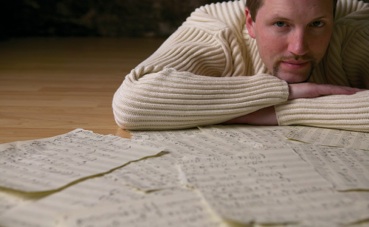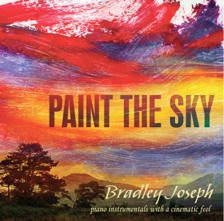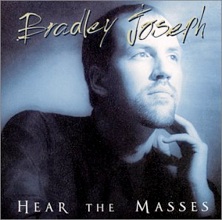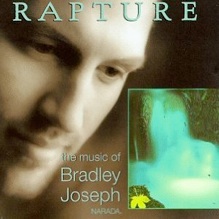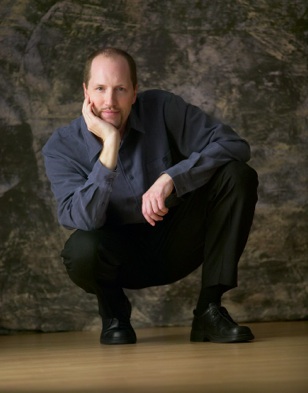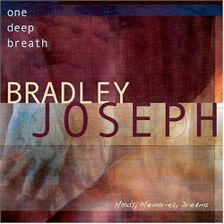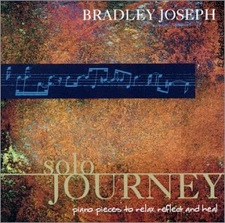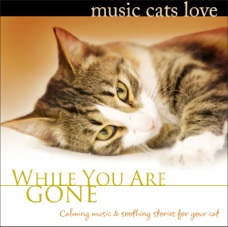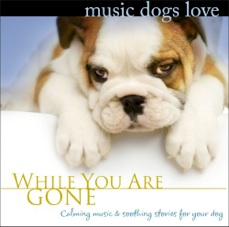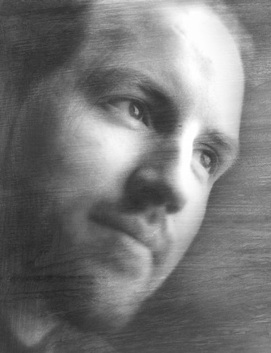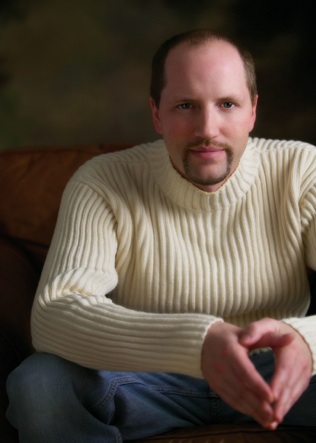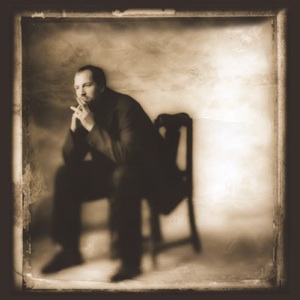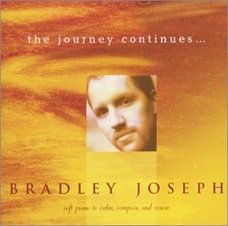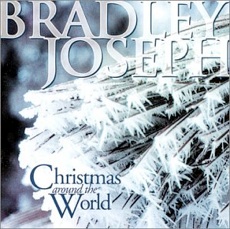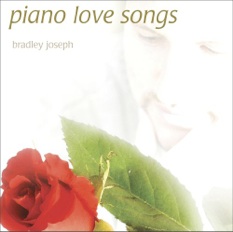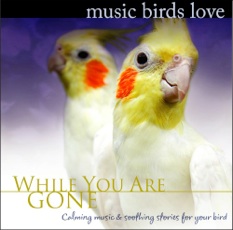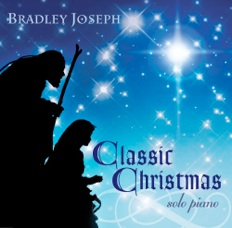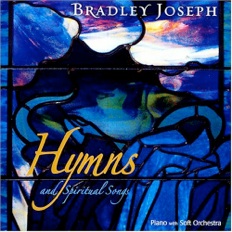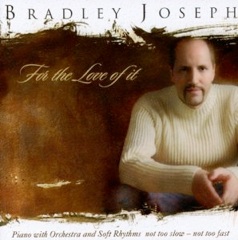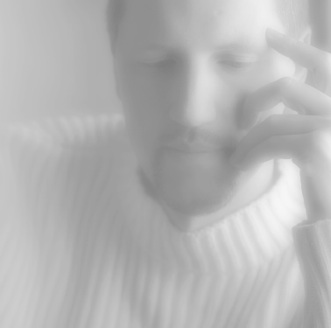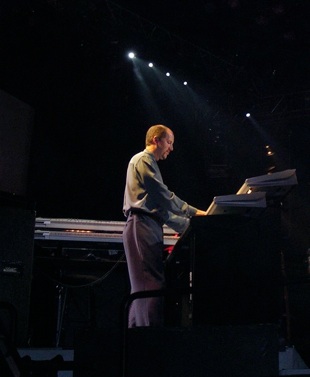I first became familiar with Bradley Joseph back in the ’90’s when he was the touring keyboardist for Yanni. He released his first album as a solo artist in 1995, and recently released his seventeenth album,
Paint the Sky, which I think is some of his best work to date. This seemed like a great time to get better acquainted with Bradley, so we did this interview by email.
KP: Hey Bradley! Has it stopped snowing in Minnesota yet?
BJ: I personally believe that it never stops snowing here in MN no matter what time of year it is. It just pauses every now and then.
KP: Kind of like the rain here on the Oregon Coast! You recently released your seventeenth album as a solo artist, Paint the Sky, which I love. How is it doing?
BJ: First of all, thank you so much for the wonderful review of the CD. I’ve received so many inspiring emails from my fans over the last month saying how much they are enjoying the CD. I really put my heart into this one, so it’s great to hear it’s appreciated.
KP: You released several CDs of original music fairly close together, starting with Hear the Masses in 1995, and then no originals for ten years. What was the inspiration for the music on Paint the Sky?
BJ: Over the last few years I have had so many listeners ask me to do another CD similar to Hear The Masses and my 1997 release, Rapture. They wanted to hear more compositions that incorporate lush orchestration along with the piano. I had recorded a few original solo piano releases during that stretch, but nothing that was as musically expressive as my first two CDs. It takes a much larger time frame to record a CD like Paint The Sky because of all that’s involved. I had a few song ideas in my back pocket that didn’t fit my other releases and I just decided it was time.
KP: Rapture (1997), was on the Narada label, and as I remember, was quite a hit. Then Solo Journey (1999) was on your own Robbins Island Music. Why did you choose to become an independent artist?
BJ: I actually had a deal with Narada to release four more CDs after
Rapture, but I asked to be released from that agreement. The Internet was just starting to expand and I saw it as a great opportunity. Not only could you get distribution, which was almost impossible without a label, you also keep complete control of your music with 100% ownership. All of that factored into my decision.
KP: It’s really interesting how the recording industry has changed. Being signed by a label used to be the only way to get anywhere, but now it seems that the majority of musical artists have gone independent. What’s your take on that?
BJ: The playing field has really leveled for artists with the power of the web. It does come with its drawbacks because now artists have to do things besides making music. You have to run yourself like a label and that takes time away from your creative process.
KP: I would think that there are not a lot of artists who are good at both the creative and the promotional ends. Do you think labels like Narada, Windham Hill, and Private Music will ever come back?
BJ: It’s certainly possible, but they would have to get rid of the old school mentality, concentrate on artist development, and get involved in all areas of the musicians’ careers (much like a 360 deal). I think it would take a new young label that relishes in new media and social networking skills to be really successful.
KP: That really makes sense. Please excuse my ignorance, but what’s a 360 deal?
BJ: It used to be that a record label would only take a big cut of proceeds of record sales. Any concert tickets or merchandising sales belonged 100% to the artist. That’s why you would see artists that signed really bad record deals tour all the time. It was the only way to make any money. Now with the decline of CD sales over the past few years, labels have signed 360 deals with artists, meaning they get a piece of EVERYTHING an artist makes. This can be a good thing if you have a great label behind you. Now the label knows that if they help you put together a great tour they will make money. Or design great t-shirts because they will make a portion of the sales. Rather then take a huge chunk of record sale profits, they now take a little everything. Of course it can be a bad thing if the label makes you do all the work and just sits back and collects their cut.
KP: Going back to you - those of us who have been around for awhile recall that you became Yanni’s touring keyboardist after John Tesh left to go solo. When was that, and how did you come to Yanni’s attention?
BJ: Back in 1998 I was the keyboard player for singer/songwriter Dugan McNeill in Minnesota. He was signed to Polygram records and we were a U2 type pop/rock band. Dugan was a great friend and let me use his studio to record some compositions I had written. I was very passionate about getting my music heard and would give my demos to anyone associated with anyone in the music business. Dugan had played in a rock band with Yanni years earlier so I asked if he would send my cassette to Yanni and he did. Yanni saw something in my demo and hired me sight unseen. I moved out to California a few weeks later.
KP: I still think Yanni is one of the most exciting and charismatic performers around and saw him in concert in the SF Bay Area quite a few times. I remember seeing you play with him several times, too. How long did you tour with Yanni?
BJ: I toured with him for five years then left and performed with Sheena Easton for five years. I later returned in 2003 to tour with Yanni to promote his Ethnicity CD.
KP: What an incredible way to see the world! What was your favorite concert with Yanni?
BJ: You know, most people would think it’s the Acropolis, but actually it's the Excel Energy Center here in Minneapolis in 2003. When I was a young kid, I saw Genesis at the exact same location. I was so in awe of the whole experience that I vowed I would return to perform someday on that stage. Well, it took me 20 years and for the city to tear down and build a new arena, but I did it.
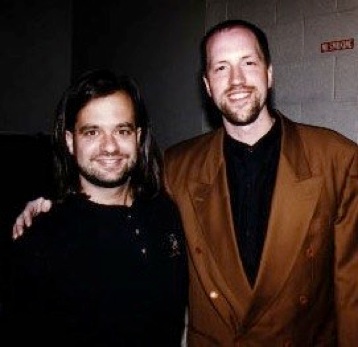
Bradley and Charlie Bisharat
KP: I’m sure it is especially exciting to play on your home turf! One of the things that really impressed me with Yanni’s concerts was the freedom he gave (and gives) his musicians. I’ve never seen anything more exciting than Charlie Bisharat and Karen Briggs dueling it out with their violins, horsehair flying everywhere! Quite a few of those musicians played on your first few albums. How did that come about?
BJ: I can’t express how much I learned from all the players in Yanni’s band over the years. Charlie Bisharat has played on a few of my CDs and he never ceases to amaze me. No matter how busy he is, he’s right there if I need him to lay down a part for me. Charlie stood right next to me onstage for years and I have to say he is one of the most talented musicians I have ever known. During concerts, Charlie would sometimes lean over my keyboards and hit one of my keys with the end of is violin to make it sound like I hit a wrong note. Yanni would look up like “what are you doing Bradley?” I still laugh when I think of that. The things you do when the tour starts to get long.
KP: That’s funny! Did you play on some of Yanni’s albums as well as touring with him?
BJ: I never went into the studio with Yanni to record. The only time we recorded together was on the “live” CDs.
KP: You also toured with and were music director for Sheena Easton for several years. Tell us about that.
BJ: Yes, that was quite a departure after playing with Yanni all those years. I went from Greek instrumental rhythms to R & B pop music in a blink of an eye. Once again, great musicians, classic songs I grew up listening to on the radio, and the addition of vocals, which was a welcome change. I grew up in rock bands so to go back to having a lead singer, especially one as great as Sheena Easton, was a highlight in my career.
KP: Looking at the Music Store on your website, you have a really eclectic collection of original and cover music that includes music for relaxation, love songs, classical music, Christmas music, and music with nature sounds. How did you come up with the idea for music for pets?
BJ: I currently have two dogs and two cats that roam in and out of my studio. I began to notice that sometimes they would sit and listen and sometimes one would jump into my lap and watch me play, depending on the style of music I was playing. I really felt they were listening and enjoying certain musical styles. That gave me the idea to design something specifically for them.
KP: Over the years, I’ve also noticed that there is music that pets will stop and listen to and that some of them really like to hang around the piano (I have two dogs and five cats). You currently have five CDs and two DVDs in the pets collection. Is all of that music original? I love some of your song titles!
BJ: Some of it’s originally written for the pet CDs, and some of it I used existing original pieces I had already recorded that my pets really seemed to enjoy. I also layered in nature sounds that weave in and out of the music to create a more interesting listening experience.
KP: Do you plan to do any more in that series?
BJ: They have been extremely successful, but I have no plans to add more titles. I always kid that I spent 40 years of my life perfecting my musical talent so I could perform for dogs.
KP: That’s pretty funny! Let’s backtrack a bit and talk about some of your early years. Where were you born and where did you grow up?
BJ: I was born in Bird Island, MN and raised in Willmar, which is in west central MN.
KP: Are any of your family members musicians?
BJ: Yes, my older brother is a music teacher in Willmar, MN and I credit him for being a big influence on me when I was younger.
KP: When did you start playing the piano?
BJ: I started around eight years old. I found a “How To Play” piano book in the family’s piano bench and started from page 1.
KP: How long did you take piano lessons?
BJ: One and a half years after I learned the basics on my own.
KP: When did you write your first piece?
BJ: I believe when I was a senior in high school.
KP: How old were you when music became a driving force in your life?
BJ: When I was in the seventh grade I took a school field trip to see Buddy Rich perform at Orchestra Hall in Minneapolis. During one song the sax player stood up to play a solo and it changed my life forever.
KP: Those moments are always awesome! Do you play any other instruments?
BJ: I played trombone in the jazz band in college, and a little guitar in my first wedding dance band. I learned a long time ago to stick with what I do best, so mainly keyboards now. But those experiences proved invaluable because now I can relate to guitarists and horn players when I have to use them in my music.
KP: Were you a music major in college?
BJ: That’s an interesting and significant story in my life. As I stated, I am pretty much self-taught, so I never learned certain basics that are expected from a trained player. My first day of college, I stepped into the main music teacher’s office and she immediately had me sit down at the piano. She told me to play scales and I proceeded to do so. Then she said to play them two octaves each. I had never learned that and fumbled with my fingerings. Next, she placed a classical piece in front of me and asked me to play it. I fumbled through that. She asked me what I wanted to do in my life and I said, “I want to be a professional musician and a composer.” I remember her response clear as day even now, 30 years later, “Well THAT’S not going to happen.” She then proceeded to tell me she wouldn’t take me as a student and that was the end of it. Five minutes in front of her and she determined my fate in the music business and I was swooshed away.
I did end up registering for a composition class and stayed through the year working on my own. The last day of the semester, I performed two original piano pieces at a recital that was required for the class. Immediately following the recital, the teacher that swooshed me away earlier in the year approached me and apologetically said, “I am so sorry…I had no idea you were this good…I am so very sorry.” I left school an hour later never to return. Four years later I was performing with Yanni and the Dallas Symphony Orchestra in front of 20,000 people.
Recently I ran across the sheet music of one of the songs I composed and performed at that recital, and I decided to record it as a tribute to that time in my life. It’s on my new CD, Paint The Sky, titled “Light Through The Trees.” I can really hear the sadness, the hope, and the belief I had in myself even at that young age.
KP: That was one of my favorites on the album, too. How old were you when you started playing professionally?
BJ: Nineteen. It was a wedding dance band, and it really exposed me to a variety of different musical styles, from polkas, to jazz standards, to top 40. It seemed like we played every VFW there was in Minnesota.
KP: Who do you consider to be some of your primary musical influences?
BJ: I grew up listening to bands of the 80s. Styx, Journey, Van Halen, and Night Ranger. My brother exposed me to the Beatles, and many of the singer songwriters of the era.
KP: Who are some of your favorite performers?
BJ: Don’t ask me why but I loved Jack Blades, the bassist for Night Ranger, when I was younger. Eddie Van Halen was a favorite as well growing up.
KP: Who are some of your favorite composers?
BJ: Mostly soundtrack guys. James Horner, Dave Grusin, Jerry Goldsmith, Ennio Morricone.
KP: Do you see yourself going in that direction at some point?
BJ: I love the idea of visual with music, always have. I would like to but it has its drawbacks. You usually are on extremely short deadlines and have very little time to compose a lot of music. That means it can be very stressful. Also, you typically are paid a fee to compose and therefore do not own the music. If the film studio does not release the music on CD, or discontinues the film, your music may never be heard by anyone and may sit in the film studios backroom forever. What if I composed something that I consider my best work? I could never release it on my own or even perform it in public without their permission.
KP: I’ve interviewed several artists who were really excited about film scoring and then encountered exactly what you described. What has been your most exciting moment or experience so far?
BJ: I really enjoyed playing on The Tonight Show with Sheena Easton. I also did a free outdoor concert with Sheena on the east coast the drew 300,000 people and it was surreal.
KP: Yikes! I think that’s more than the population of the whole state of Oregon (not really!) ! Is there a particular philosophy that you try to convey in your music?
KP: If you could have any three wishes, what would they be?
BJ: Gosh that’s a loaded question.
Musical wishes:
1.That every listener could hear EXACTLY what I hear in my head when I conceive a song. The struggle is trying to transfer what I hear in my head to the recording.
2.That every person in the world would have a chance to hear my songs. If they hate them no problem - at least they would have the option to choose.
3.Two wishes is more than enough
KP: What’s up next for you?
BJ: To just keep moving forward with my music and my music company.
Many thanks to Bradley Joseph for chatting with us! To learn more about Bradley and his music, please visit
his website and his
Artist Page here on MainlyPiano.com.
Kathy Parsons
May 2013

